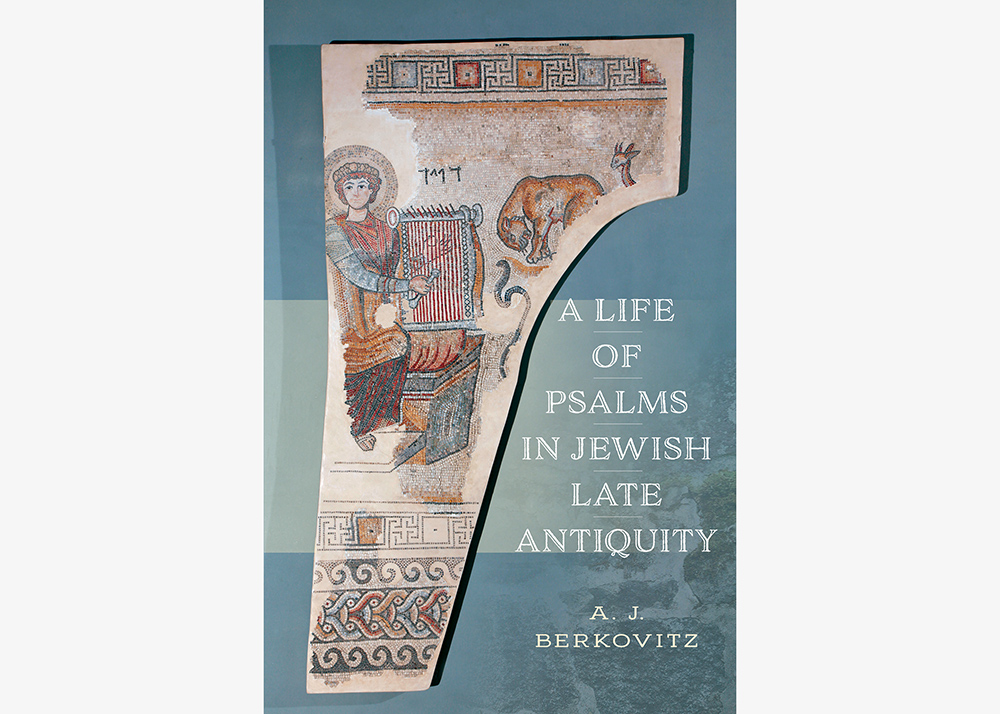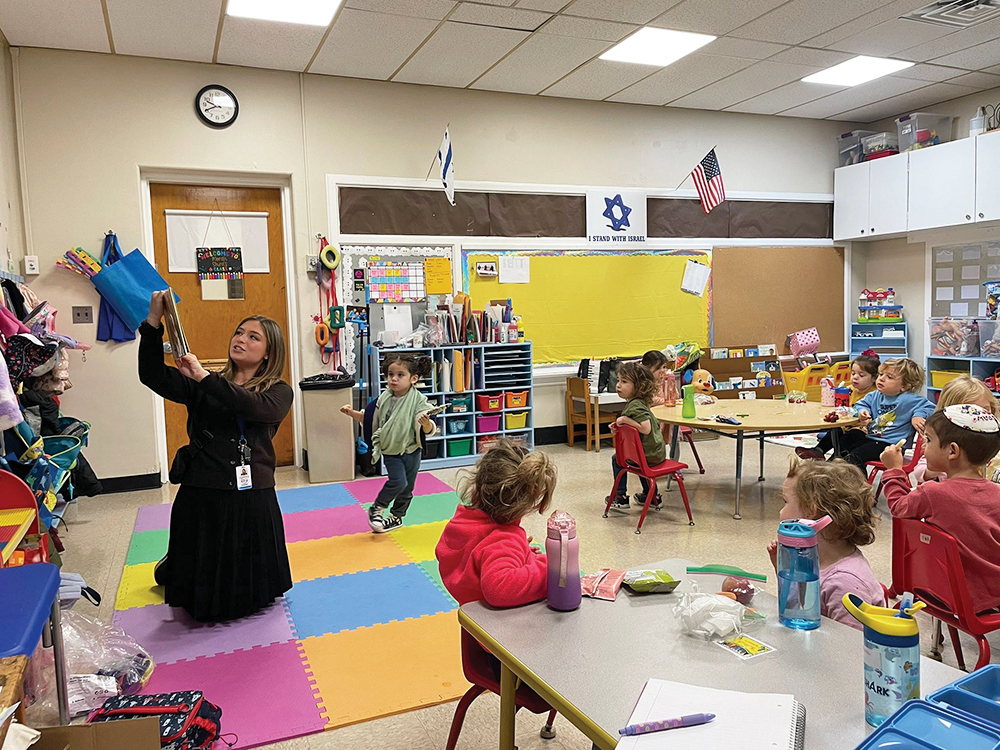By Dr. A.J. Berkovitz

Highlighting: “A Life of Psalms in Jewish Late Antiquity” by AJ Berkovitz. University of Pennsylvania Press. 2023. English. Hardcover. 274 pages. ISBN-13: 978-1512824186.
Sefer Tehillim, The Book of Psalms, incorporates prayer, healing, learning, piety. It permeates our prayers, encompassing emotions of loss and grief, shouts of joy and jubilation, and words of thanksgiving and praise—but the book and its history in Judaism is misunderstood. Below are 10 little-known truths about sefer Tehillim and its origins. In my recently published book, “A Life of Psalms in Jewish Late Antiquity,” I present one through five in greater detail; Numbers six through 10 is the subject of my current book-in-progress.
- Sefer Tehillim Is Not a Book
At least not as we (still kind of) think of the word “book”: a bunch of pages stuck between two cardboard covers. Until around the ninth century, Jews copied biblical texts in the format of a scroll—an ancient trend that continues with the modern-day sefer Torah and Megillat Esther. Ultimately, the word “sefer” signals a conceptual unit instead of a physical one.
- Sefer Tehillim Existed As Multiple Scrolls
By the times of Chazal, tradition split Tehillim into five books (One—psalms 1–41; Two—psalms 42–72; Three—psalms 73–89; Four—psalms 90–106; Five—psalms 107–150). The material reality of a scroll underpins this division. Ancient Jews would have found a complete copy of a Tehillim too unwieldy to read. Imagine regularly reaching for a scroll about a third of the length and heft of a sefer Torah. (The physical limits of scroll length also explain why Shmuel, Melachim and Divrei Hayamim appear into two “books.”)
- Tehillim and Tefillah’s Long and Storied History
The Leviim who sung during the avodah of the Temple did not bequeath Tehillim to the modern siddur in a direct manner. The earliest members of Chazal, the Tannaim (70-200 CE), did not adopt the Temple’s custom to recite chapters from Tehillim as part of everyday prayer. The Amoraim (200-400 CE), however, slowly reintroduced Tehillim into everyday prayer. Ultimately, Tehillim populates Rav Amram Gaon’s (810-75 CE) siddur—the first ever written.
- Prayer and Piety Intersect
Jews often transported texts across the boundary that divided what one must say as part of prayer and what one wants to say in addition to mandated prayer. The current custom to recite Ashrei (Psalm 145+other verses from Tehillim) three times a day originates in a pious practice to recite Psalm 145 once a day. And Hallel (Psalm 113-118), that liturgy reserved for most festivals, was recited daily by some exceptionally pious people. Even the name pesukei d’zimra (verses of song) once upon a time referred to a collection of Psalm verses said during a moment of joy.
- The Magic of Tehillim
Modern Jews who recite Tehillim during moments of disaster mimic their ancestors—but only in part. Ancient Jews truly viewed Tehillim as magical. They used its words to cure the ill, expel demons, safeguard cisterns, secure buildings and even curse enemies. By the turn of the millennium, a living body of literature known as Sefer Shimmush Tehillim (The Book of the Use of Psalms) fully emerged. The ever-evolving text lists in serial order each Psalm along with its practical-magical application.
- Why Is Tehillim So Repetitive?
Many psalms sound similar to one another. Ideas and even words often repeat, and for good reason. The book was never meant to be read from start to finish. Rather, it anthologizes oral poetry. The poets of ancient Israel built their creations upon the foundation of stock language—such as “save me from my enemy” and “hear my prayer”—alongside intentionally iterative devices, such as parallelism: saying a line once/and then once again with a twist.
- Why Is Tehillim So Repetitive?
Yes, again. Since an oral world encouraged texts to move in unexpected ways, snippets of psalms appear outside of sefer Tehillim. 1 Chronicles 16:8-36, Asaph’s first prayer, combines the words of psalms 105:1–15, psalm 96:1-13, psalm 106:1 and psalm 106:47–8. Furthermore, 2 Samuel 22:1, David’s victory poem, almost perfectly matches psalm 18. Even sefer Tehillim repeats an entire poem: psalms 14 and 53 are almost entirely identical.
- Ashrei’s Missing Nun Verse
Passing a poem along by word of mouth also had some unintentional consequences: Stuff sometimes goes missing. Famously, psalm 145, the core of Ashrei, lacks a nun verse in an otherwise perfect alphabetical poem. The early Greek translation of the Psalms as well as a copy of the Psalms found among the Dead Sea Scrolls contains the nun verse. Perhaps it is the original verse. Or, perhaps, a new nun verse was added into the poem after the original dropped out.
- How Many Mizmorim?
There are more than 150 psalms. Or fewer. It depends on who you ask. Some members of Chazal reckoned psalms 1 and 2 as a single unit. And others enumerate 147 poems, in accordance with the lifespan of Yaakov Avinu. Ultimately, medieval Jewish scribes preserved many different configurations of the traditional text of sefer Tehillim, from as few as 143 to as many as 154.
- Who Wrote Sefer Tehillim?
King David is the simplest answer. But also historically incorrect. Various psalms might have their roots in the words of David. But some, such as psalm 29, go back even further. And others, such as psalm 137 “By the Rivers of Babylon,” were first conceived well after David died. Even the text of Tehillim refers to composers such as Asaph, the Sons of Korach and many others. So why do people speak of Tehillim in the same breath as David? Since, as Shir HaShirim Rabbah 4.4.1 declares, “his voice was sweet, as it says, ‘[David is] the sweet singer of Israel’” (2 Sam 23:1).
Dr. AJ Berkovitz lives in Highland Park,and attends Congregation Ahavas Achim. He teaches about Jewish Antiquity at HUC-JIR in NYC and in other venues. He’s convinced that he’s read every scholarly book and article about Tehillim (Psalms) that is available on the market. Can you name a worthwhile text he missed? Please send him reading recommendations or reactions to this column or to his book, via an email at [email protected].











